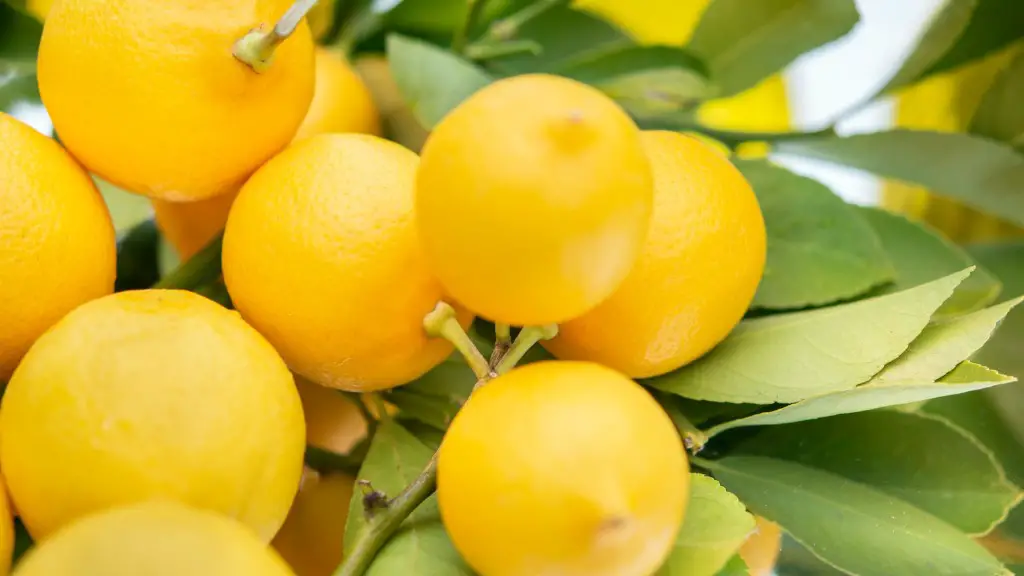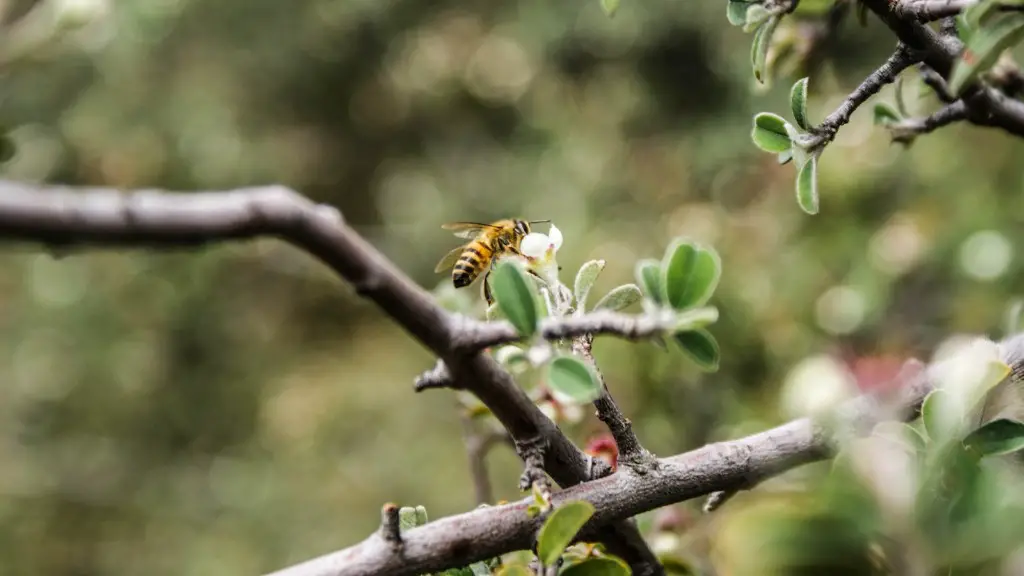Starting a lemon tree from a lemon seed is an exciting and rewarding experience. To ensure your success, there are several steps that must be taken to create the most optimal environment for your seedlings. Here is how to get started:
First, it is important to acquire viable lemon seeds. Look for seeds that were freshly picked from a ripe lemon. If possible, try to purchase certified organic, as this will eliminate the need for any harsh chemicals or pesticides during the growing process.
Once you have your lemon seeds, the next step is to plant them. Make sure to prepare a sterile, well-drained potting soil for the seeds. Gently place the seeds in the soil, about 1/4 inch deep and one inch apart. Then lightly cover them with more potting soil and water gently.
Once the seeds have been planted, place the pot in a bright location with indirect light. Ensure that the potting soil remains moist at all times, but be careful not to over water. With proper care, your lemon seedlings should start to sprout within four to six weeks.
Once your seedlings have grown several inches tall, it is time to transplant them into individual containers. Line the container with clean soil and carefully dig out the seedling. Place them in the container and then fill any gaps with potting soil. Water lightly and place in a location with plenty of indirect light.
Finally, keep the soil moist, but not soggy. Within a few months, your lemon tree should be ready to produce beautiful lemon flowers. With the proper care, your lemon tree should start to bear fruit within one to two years.
Watering The Lemon Tree
To properly water your lemon tree, you’ll need to check the soil’s moisture level often. If it is dry to the touch, it is time to water the tree. Use just enough water to soak the soil, making sure not to overwater. Lemon trees require moist, but not soggy soil. Generally, water your lemon tree twice a week in winter and three times a week in summer. If necessary, increase this frequency owing to hotter weather.
In addition, you may opt to add mulch to your soil as a way to help retain moisture. Make sure to use a mulch that is not too thick, about two to four inches, to ensure it does not suffocate the roots. Finally, don’t forget to check the leaves of your lemon tree for insect damage or yellowing. This can be signs of moisture related stress that should be addressed right away.
Fertilizing The Lemon Tree
It’s important to fertilize your lemon tree regularly, as it will help it produce more fruits. Use a general-purpose fertilizer, such as a 10-10-10 blend, but make sure to follow the dosage directions. Use a mild option, as lemon trees are sensitive to over-fertilization. Generally, fertilizer should be applied every three months. Additionally, it is important to check the soil around your tree for deficiencies, as this will help determine any extra fertilizers your tree might need.
You can also opt for an organic fertilizer. There are several on the market, such as alfalfa meal, that can help promote healthy growth for your lemon tree. In addition, you can add compost to the soil to improve the fertility and help break up clay soil.
Pruning The Lemon Tree
Pruning is important for any fruit tree, and lemon trees are no exception. Pruning helps to improve the shape, size and overall health of the tree and can also help increase lemon production. Start by pruning any broken or dead branches, and those that are weak, diseased or dead. Next, you’ll want to prune away any excess shoots or stems. Finally, prune away any sucker branches, as they can be a distraction from the lemon tree’s main form.
When pruning, use sharp, sterilized pruning shears and always cut perpendicular to the branch. Make sure not to use too much force, and try to keep the cuts clean and tidy. When finished, take the time to clean up any fallen leaves or branches to help the tree focus its energy to the strong, healthy branches.
Insect Control For The Lemon Tree
To keep your lemon tree healthy and free from insect damage, you’ll need to use insect repellents. Look for products that are specifically formulated for citrus trees. And, if possible, try to use natural, organic products that are biodegradable and safe for the environment. When spraying, make sure to cover all parts of the tree, including its foliage and branches. Avoid spraying during the heat of the day, which could lead to sunburned leaves.
In addition, you can use an insecticidal soap or a horticultural oil to help control insect pests. Follow the directions on the product label and apply as necessary. Additionally, keeping your lemon tree pruned and healthy will help prevent any insect infestations.
Disease Control For The Lemon Tree
Lemon trees can be prone to disease, so it is important to monitor your tree regularly and identify any signs of disease. Make sure to check for any yellowing leaves or spots, as this could indicate a fungal, bacterial or nutritional problem. If left untreated, the disease could spread and severely impact your tree’s health and productivity.
If you suspect any disease, you can apply an appropriate fungicide or insecticide. Always follow the instructions on the product label and contact your local extension office if you have any questions. In addition, make sure to plant disease resistant varieties and practice proper sanitation to help prevent any future problems with your lemon tree.


